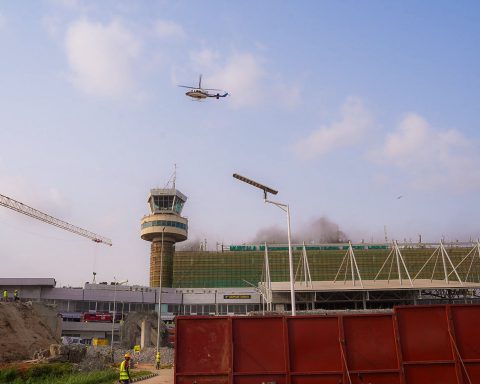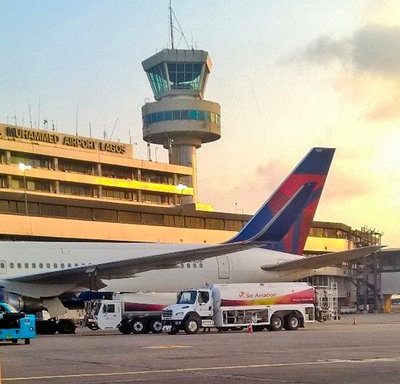The Pharmacy Council of Nigeria (PCN) has sealed 486 medicine outlets in Niger State for operating outside regulatory standards, in a move officials say is aimed at protecting residents from the dangers of unsafe drug practices.
The enforcement exercise, which covered nine Local Government Areas, involved the inspection of 672 premises, comprising 136 pharmacies and 536 patent medicine stores.
Join our WhatsApp ChannelDr. Suleiman Ciroma, Head of Enforcement for PCN, said the clampdown became necessary after widespread violations were uncovered.
“We inspected 672 premises comprising 136 pharmacies and 536 patent medicine stores. Out of these, 486 were sealed for various breaches,” he explained.
According to him, the outlets were shut for offences including unlicensed operations, non-compliance with regulatory guidelines, unauthorized clinical practices, sale of controlled medicines without approval, and illegal training of apprentices.
Health experts warn that medicines dispensed outside professional control can expose patients to life-threatening risks, including wrong prescriptions, drug resistance, and circulation of counterfeit or substandard products.
Ciroma stressed that the council’s priority was to safeguard public health.
“We cannot allow people who are not trained in the handling of medicines to expose the public to dangers,” he said.
READ ALSO:
- Tradition, Power, Law: Ooni–Alaafin Clash Over Yoruba Titles
- South Sudan Gets Seventh Finance Minister Since 2020 Amid Economic Strain
He urged residents to be more vigilant, advising that licensed pharmacies and Patent and Proprietary Medicine Vendors (PPMVs) can be identified by the visible display of their valid licences.
“The public must insist on this for their own safety,” he noted.
The seal-up could have ripple effects in rural communities, where patent medicine vendors often serve as the first and sometimes only point of access to basic medicines. While PCN insists that unlicensed outlets pose health hazards, the closures may leave gaps in drug availability for residents in remote areas, highlighting the need for better distribution of licensed pharmacies and trained vendors.
The council has carried out similar operations in other states in recent months, as part of a broader push to tighten oversight in the pharmaceutical sector and curb the distribution of unsafe medicines.
Amanze Chinonye is a Staff Correspondent at Prime Business Africa, a rising star in the literary world, weaving captivating stories that transport readers to the vibrant landscapes of Nigeria and the rest of Africa. With a unique voice that blends with the newspaper's tradition and style, Chinonye's writing is a masterful exploration of the human condition, delving into themes of identity, culture, and social justice. Through her words, Chinonye paints vivid portraits of everyday African life, from the bustling markets of Nigeria's Lagos to the quiet villages of South Africa's countryside . With a keen eye for detail and a deep understanding of the complexities of Nigerian society, Chinonye's writing is both a testament to the country's rich cultural heritage and a powerful call to action for a brighter future. As a writer, Chinonye is a true storyteller, using her dexterity to educate, inspire, and uplift readers around the world.
- Amanze Chinonye
- Amanze Chinonye
- Amanze Chinonye
- Amanze Chinonye
- Amanze Chinonye
- Amanze Chinonye
- Amanze Chinonye
- Amanze Chinonye
- Amanze Chinonye
- Amanze Chinonye
- Amanze Chinonye
- Amanze Chinonye
- Amanze Chinonye
- Amanze Chinonye
- Amanze Chinonye
- Amanze Chinonye
- Amanze Chinonye
- Amanze Chinonye
- Amanze Chinonye
- Amanze Chinonye
- Amanze Chinonye
- Amanze Chinonye
- Amanze Chinonye
- Amanze Chinonye
- Amanze Chinonye
- Amanze Chinonye
- Amanze Chinonye
- Amanze Chinonye
- Amanze Chinonye
- Amanze Chinonye
- Amanze Chinonye
- Amanze Chinonye
- Amanze Chinonye
- Amanze Chinonye
- Amanze Chinonye
- Amanze Chinonye
- Amanze Chinonye
- Amanze Chinonye
- Amanze Chinonye
- Amanze Chinonye
- Amanze Chinonye
- Amanze Chinonye
- Amanze Chinonye
- Amanze Chinonye
- Amanze Chinonye
- Amanze Chinonye
- Amanze Chinonye
- Amanze Chinonye
- Amanze Chinonye
- Amanze Chinonye
- Amanze Chinonye
- Amanze Chinonye
- Amanze Chinonye
- Amanze Chinonye
- Amanze Chinonye
- Amanze Chinonye
- Amanze Chinonye
- Amanze Chinonye
- Amanze Chinonye
- Amanze Chinonye
- Amanze Chinonye
- Amanze Chinonye
- Amanze Chinonye
- Amanze Chinonye
- Amanze Chinonye
- Amanze Chinonye
- Amanze Chinonye
- Amanze Chinonye
- Amanze Chinonye
- Amanze Chinonye
- Amanze Chinonye
- Amanze Chinonye
- Amanze Chinonye
- Amanze Chinonye
- Amanze Chinonye
- Amanze Chinonye
- Amanze Chinonye
- Amanze Chinonye
- Amanze Chinonye
- Amanze Chinonye
- Amanze Chinonye
- Amanze Chinonye
- Amanze Chinonye
- Amanze Chinonye
- Amanze Chinonye
- Amanze Chinonye
- Amanze Chinonye
- Amanze Chinonye
- Amanze Chinonye
- Amanze Chinonye
- Amanze Chinonye
- Amanze Chinonye
- Amanze Chinonye
- Amanze Chinonye
- Amanze Chinonye
- Amanze Chinonye
- Amanze Chinonye
- Amanze Chinonye
- Amanze Chinonye
- Amanze Chinonye
- Amanze Chinonye
- Amanze Chinonye
- Amanze Chinonye
- Amanze Chinonye
- Amanze Chinonye
- Amanze Chinonye
- Amanze Chinonye
- Amanze Chinonye
- Amanze Chinonye
- Amanze Chinonye
- Amanze Chinonye
- Amanze Chinonye
- Amanze Chinonye
- Amanze Chinonye
- Amanze Chinonye
- Amanze Chinonye
- Amanze Chinonye
- Amanze Chinonye
- Amanze Chinonye
- Amanze Chinonye
- Amanze Chinonye
- Amanze Chinonye
- Amanze Chinonye
- Amanze Chinonye
- Amanze Chinonye
- Amanze Chinonye
- Amanze Chinonye
- Amanze Chinonye
- Amanze Chinonye
- Amanze Chinonye
- Amanze Chinonye
- Amanze Chinonye










